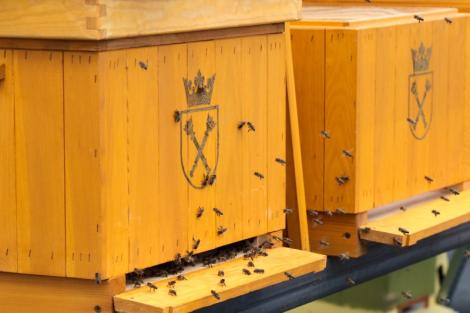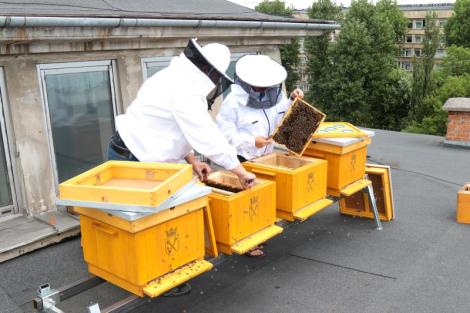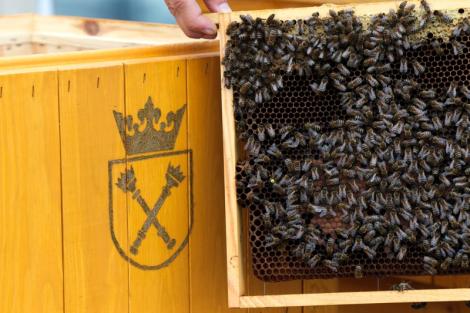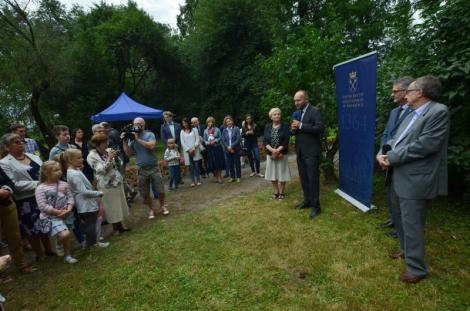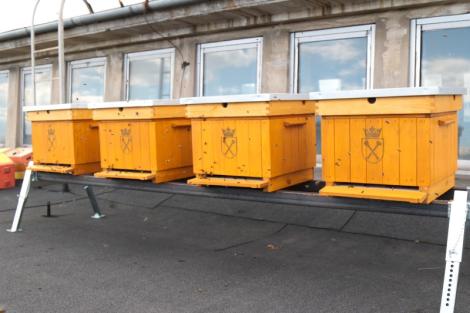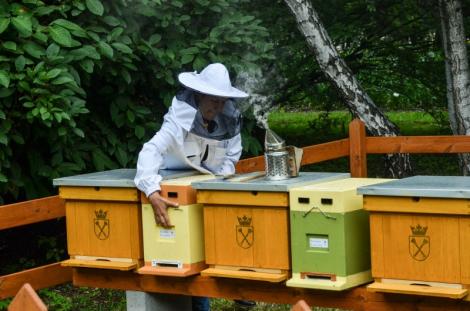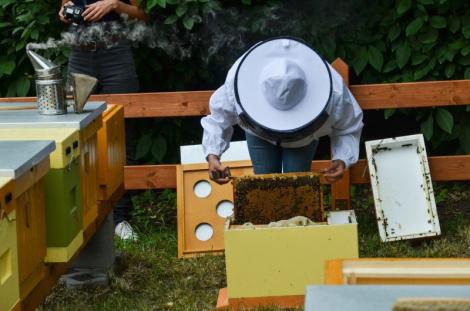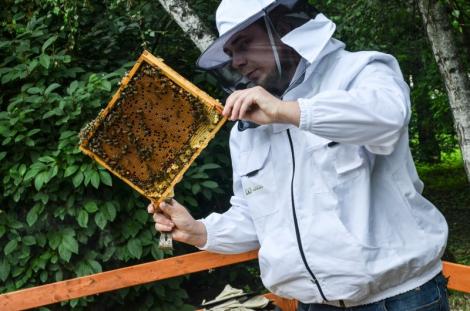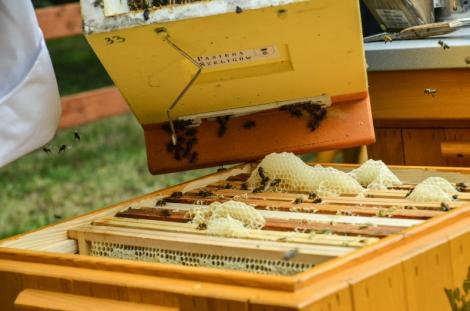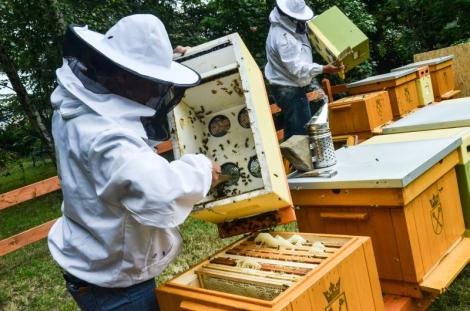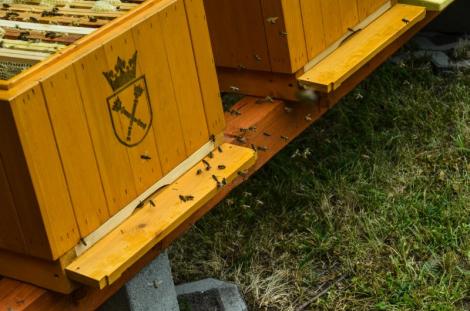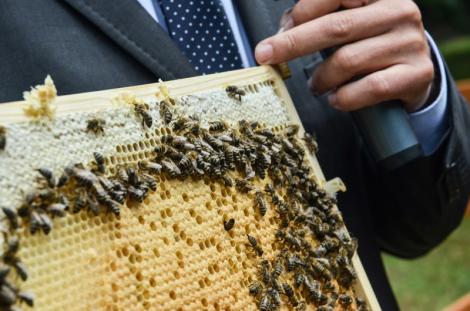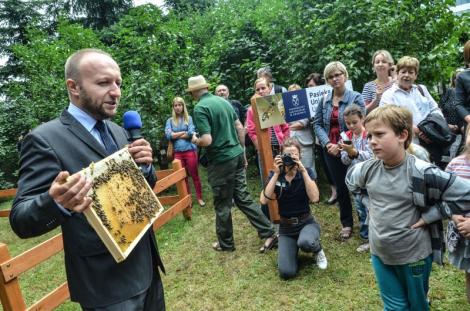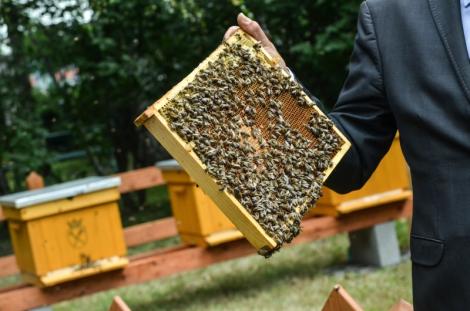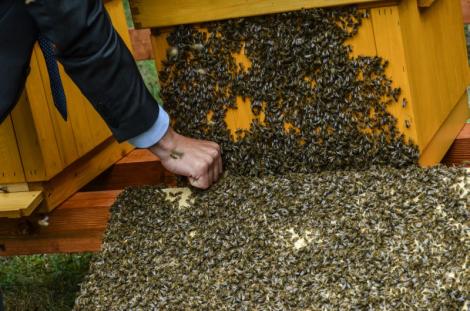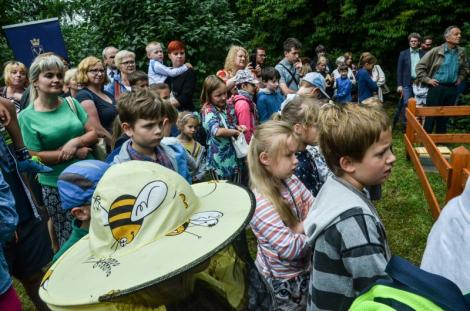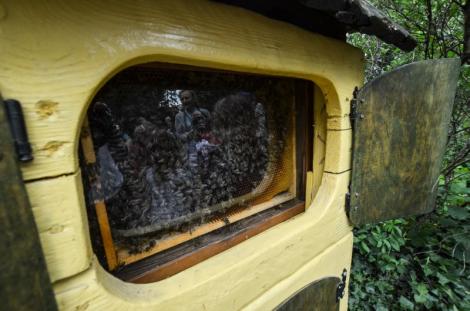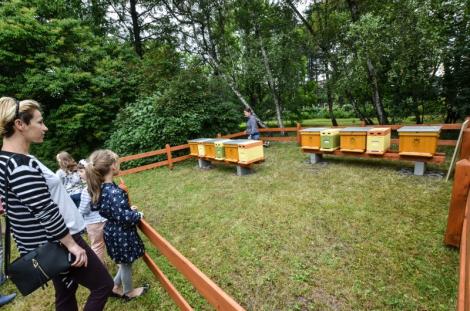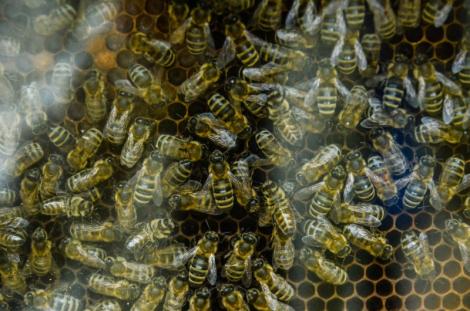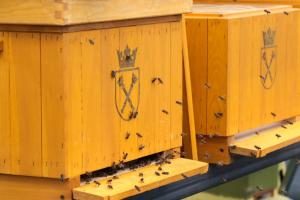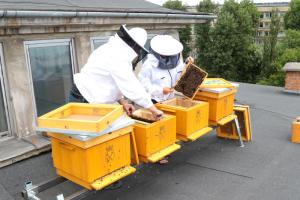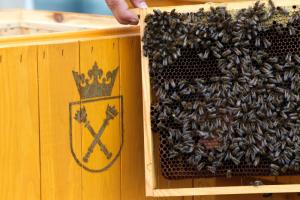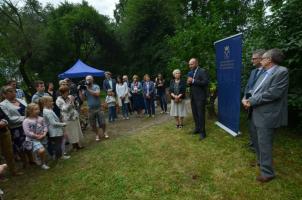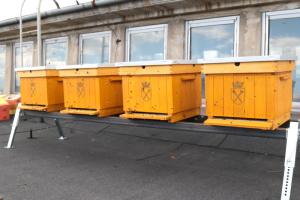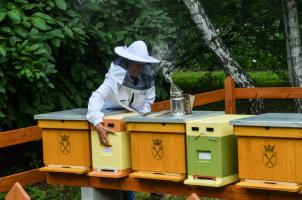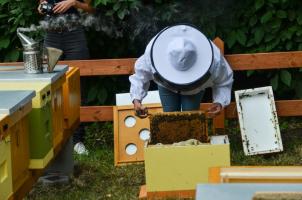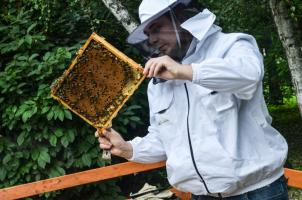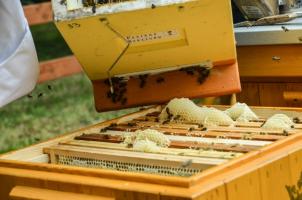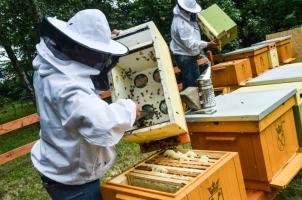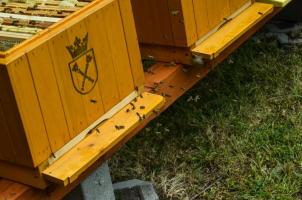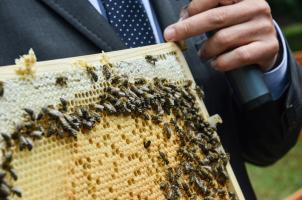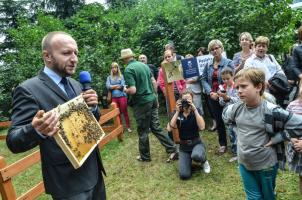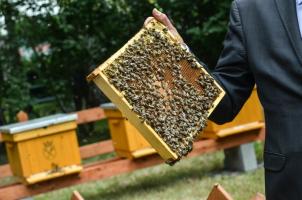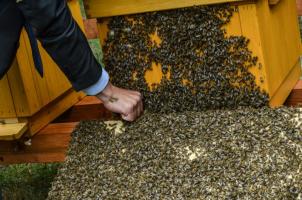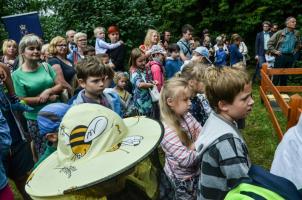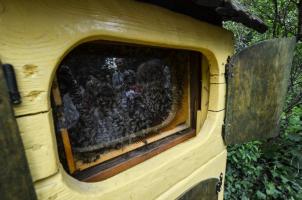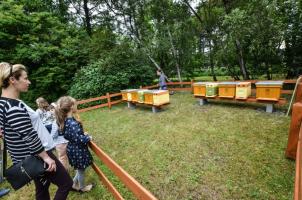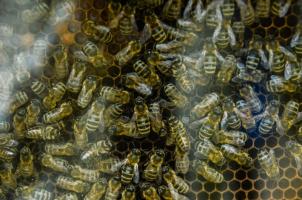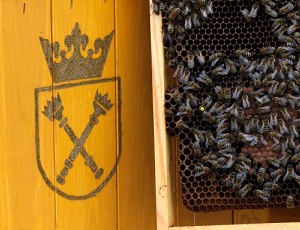
Last Saturday, the official opening of the Jagiellonian University Apiary took place at the JU Botanical Garden. The University will collaborate with a local Kraków apiary to provide the required education to beginner beekeepers, produce honey, and join the bee protection initiative.
The University Apiary comprises 25 beehives: six in the Botanical Garden, four on the roof of the Faculty of Chemistry, and fifteen in Polanka Hallera, a village adjacent to Kraków. Each of them houses about 15,000 Carniolan honeybees, with the total number reaching nearly 400,000. This number is expected to rise to 1 million next year. The bees will pollinate plants as far as two kilometres from their homes. The colonies are looked after by professional beekeepers, guaranteeing the safety of both the bees and the inhabitants of Kraków.
The newly established Beekeeper’s Academy will offer training sessions and courses for beekeepers of all levels of proficiency as well as fun activities for children of all ages. The beehives in Polanka Hallera will produce mono- and polyfloral honey. They will also serve as a backup for the beehives in the two other locations, as they will provide them with nucleus colonies, i.e. small colonies that may be used to repopulate a larger one should such a need arise. Unlike the others, the beehives in Polanka Haller will not be accessible to everyone.
The University Apiary is the Jagiellonian University’s response to the growing trend of urban beekeeping and bee protection. Kraków parks and commons are an ideal environment for these industrious insects. Although beekeeping is becoming increasingly more difficult due to diseases, pesticide use, and invasive bee species, the city’s green areas offer easy access to well fertilised plants that produce plenty of nectar. Because of this, urban apiaries yield clean, nutritious honey.


